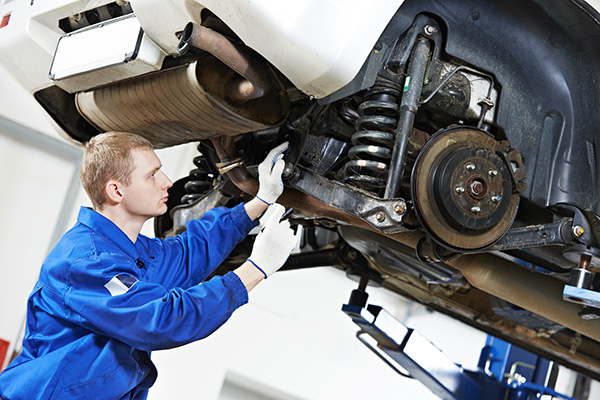
One of the most alarming driving experiences is feeling your steering wheel shake as you brake. It’s unsettling and can make you wonder if something serious is wrong with your car. This is a common issue, and while it should be addressed promptly, understanding the causes can help you figure out the right solution. So, why does your car’s steering wheel shake when you brake?
1. Warped Brake Rotors
One of the most frequent causes of a shaking steering wheel during braking is warped brake rotors. Brake rotors are the discs your brake pads clamp down on to slow your car. Over time, excessive heat, friction, or uneven wear can cause the surface of the rotors to become uneven. When this happens, your brake pads will grip inconsistently, leading to a noticeable vibration in your steering wheel.
How do you know it’s the rotors?
- Shaking typically worsens at higher speeds.
- The vibration tends to increase the harder you press the brake pedal.
Warped rotors are relatively easy to fix, and a technician can either resurface them or replace them entirely, depending on the severity of the damage. If you let this issue go on too long, it could lead to more expensive repairs down the line.
2. Worn Brake Pads
Another possible culprit behind a shaky steering wheel when braking is worn-out brake pads. Over time, brake pads naturally wear down due to constant use, and if they wear unevenly, it can cause vibrations during braking. Additionally, if the pads are excessively worn, the metal backing plate can make contact with the rotor, causing a more severe shake.
Signs your brake pads need replacing:
- A squeaking or grinding noise when you brake.
- The car pulls to one side when braking.
- You notice a burning smell after hard braking.
Keeping an eye on your brake pads and replacing them when needed is essential for both safety and comfort. Ignoring worn brake pads can lead to rotor damage, turning a simple fix into a more costly repair.
3. Suspension and Steering Problems
Your car’s suspension and steering systems play a critical role in keeping your vehicle stable and responsive. If any components within these systems are worn out or damaged, they can cause the steering wheel to shake when you brake. Some common suspension and steering issues include:
- Worn ball joints: These connect your car’s steering knuckle to its control arms. When they wear out, the steering can become loose, leading to vibrations.
- Loose or worn tie rods: These connect the steering system to the wheels, and when they become loose or worn, they can cause shaking, especially during braking.
If suspension or steering problems are the cause, you’ll likely notice additional symptoms, such as a wandering steering wheel or poor handling. These issues are typically more serious, and it’s crucial to have them checked out immediately to avoid potential safety risks.
4. Tire and Wheel Issues
It’s not always the brakes that are to blame for a shaking steering wheel. Problems with your tires or wheels can also cause vibrations when braking. Here are a few possibilities:
- Out-of-balance tires: If your tires are unbalanced, you might feel a shake at certain speeds, which can become more noticeable when you brake.
- Tire wear: Uneven tire wear, such as bald spots, can cause your steering wheel to shake when braking. This usually occurs when tires are not rotated regularly or when the alignment is off.
- Loose lug nuts: If the lug nuts holding your wheels in place are loose, it can cause the wheels to wobble, resulting in vibrations when you brake.
Checking your tires regularly for uneven wear, making sure they’re balanced, and ensuring your wheels are securely fastened can help eliminate these issues.
5. Brake Caliper Problems
A less common but possible cause of steering wheel shake during braking is a stuck or malfunctioning brake caliper. The caliper is the part of your braking system that houses the brake pads and presses them against the rotor to slow the car. If one of your calipers sticks or doesn’t apply pressure evenly, it can cause your steering wheel to vibrate.
Signs of brake caliper issues:
- The car pulls to one side when braking.
- You hear grinding noises or feel the brakes dragging even when you’re not pressing the pedal.
In extreme cases, brake caliper issues can lead to brake failure, so this is another problem that should be dealt with as soon as possible.
Notice your steering wheel shaking while braking? That’s a sign something’s not right! Bring your car to Asian Imports for a full brake inspection. We’ll take care of the problem and get you back on the road safely. Contact us today to book your service!